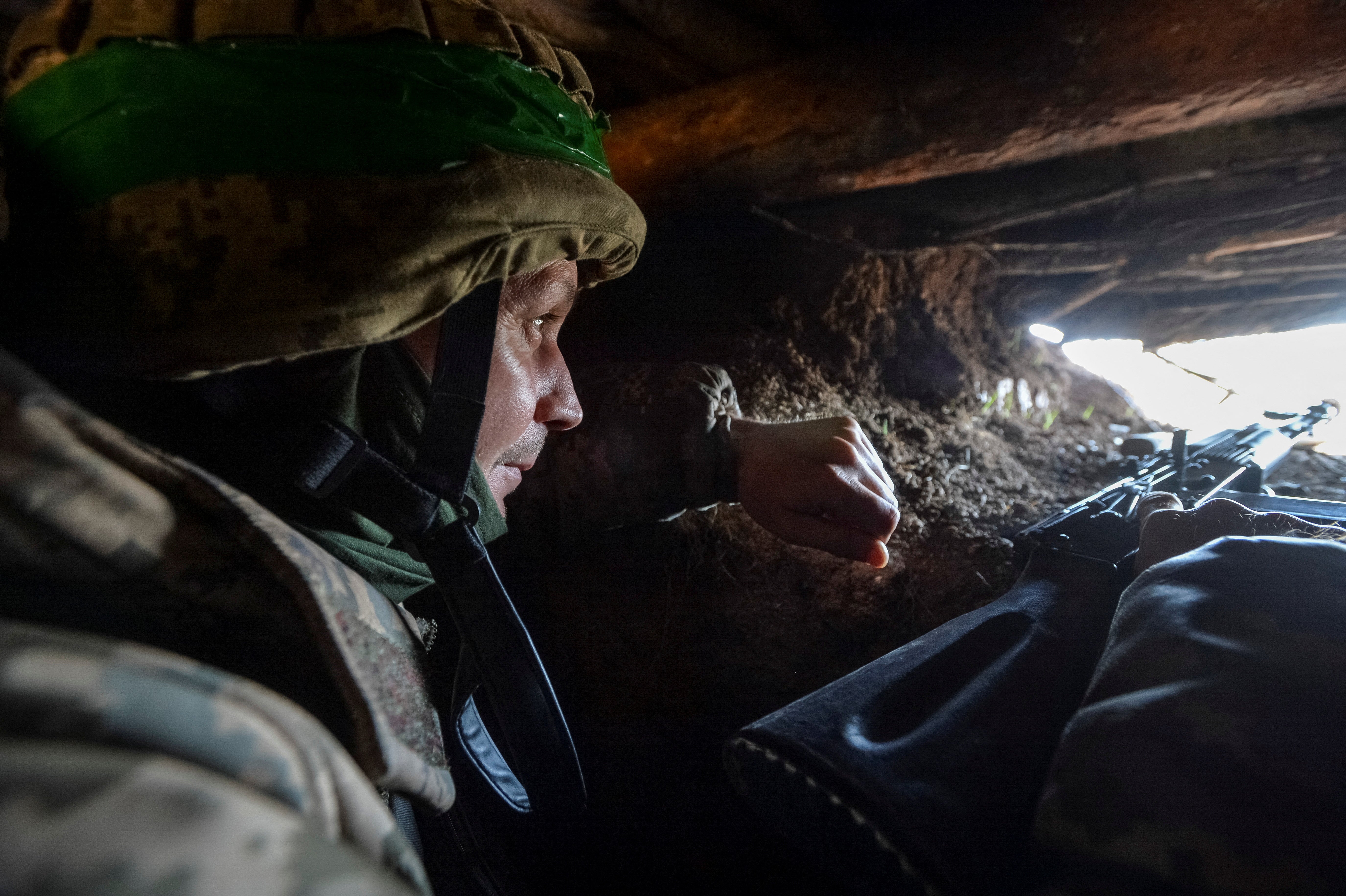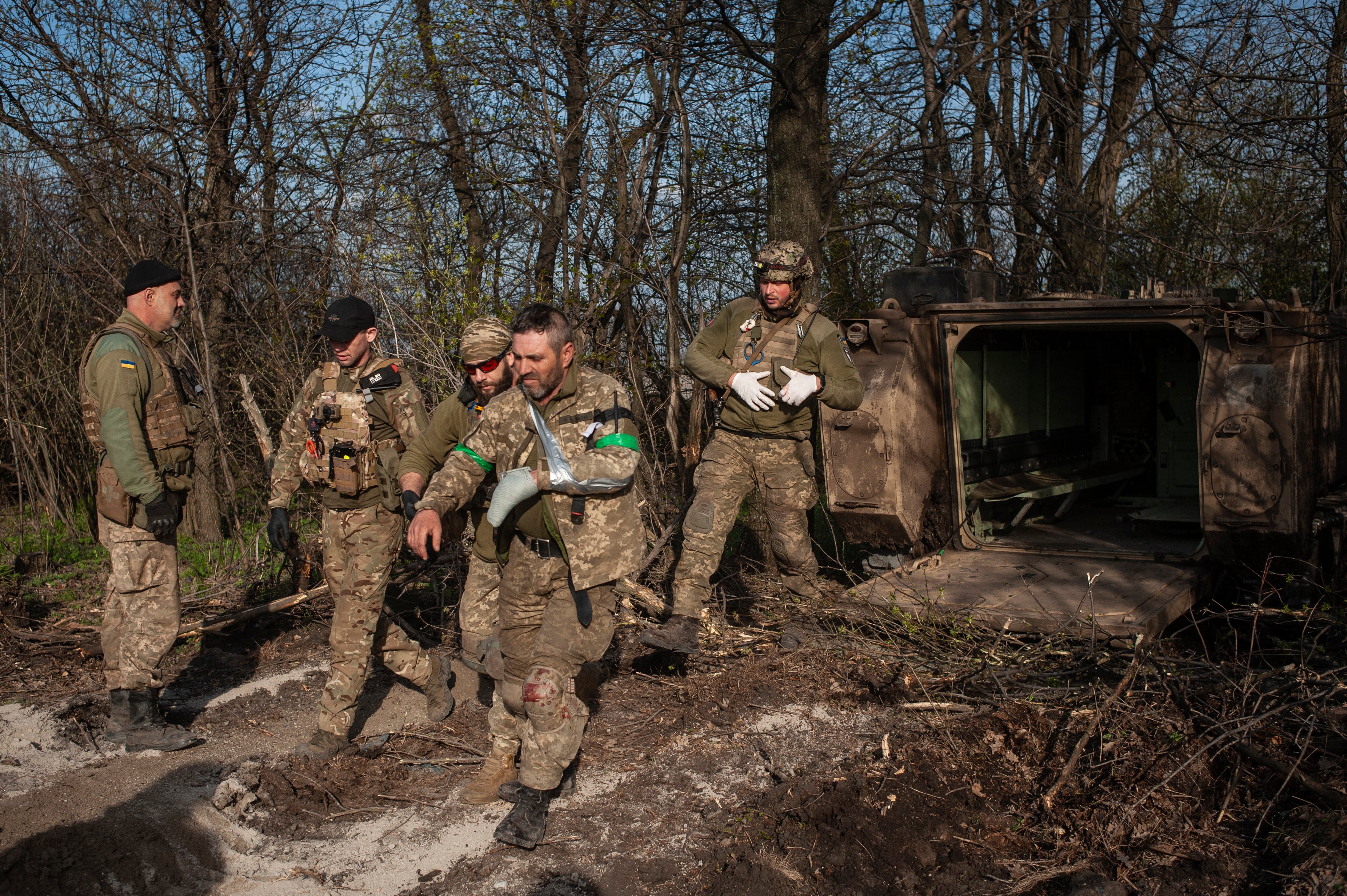Pentagon military documents leak may have started in gamer chatroom
Documents first circulated in January before being shared with wider group in March
Your support helps us to tell the story
From reproductive rights to climate change to Big Tech, The Independent is on the ground when the story is developing. Whether it's investigating the financials of Elon Musk's pro-Trump PAC or producing our latest documentary, 'The A Word', which shines a light on the American women fighting for reproductive rights, we know how important it is to parse out the facts from the messaging.
At such a critical moment in US history, we need reporters on the ground. Your donation allows us to keep sending journalists to speak to both sides of the story.
The Independent is trusted by Americans across the entire political spectrum. And unlike many other quality news outlets, we choose not to lock Americans out of our reporting and analysis with paywalls. We believe quality journalism should be available to everyone, paid for by those who can afford it.
Your support makes all the difference.A major leak of classified US documents with details ranging from Ukraine’s air defenses to growing proximity between UAE and Russia may have started in a chatroom on a social media platform popular among gamers.
On the Discord platform, which hosts real-time voice, video, and text chats, a discussion originally created to talk about a range of topics turned to the war in Ukraine, reported the Associated Press.
The leaked documents largely sat unnoticed on the platform for weeks before making their way on other social media platforms, including Twitter and Telegram, alarming US officials.
According to The Wall Street Journal, the files labeled as top secret were first shared in a small group by an anonymous member in January.
It remained in the small group comprising just over a dozen members before being shared in a larger group.
While the scale of exposure is yet to be determined, the leaks included sensitive intel suggesting Ukraine’s air defence systems could run out of missiles early next month in a major blow to the resistance effort fighting back against Russia’s invasion.
One document among the batch of as many as 100 seemingly stolen from the Pentagon, which is dated from February and marked as “secret”, estimates that Ukraine’s Soviet-era S-300 air defence systems face depletion by 2 May should the current rate of firing continue, according to The Guardian. It is unclear whether that assessment still stands two months on.

The online leaks of scores of highly classified documents present a "very serious" risk to national security, and senior leaders are quickly taking steps to mitigate the damage, a top Pentagon spokesperson said on Monday as they tiptoed around authenticating the claims.
Asked on Monday if the US government was effectively waiting for more intelligence documents to show up online, National Security Council spokesperson John Kirby replied: "The truth and the honest answer to your question is: We don’t know. And is that a matter of concern to us? You’re darn right it is."
He said at this point, "we don’t know who’s behind this, we don’t know what the motive is".
Chris Meagher, the top spokesperson for the Pentagon, urged caution in "promoting or amplifying any of these documents", adding that "it does appear that slides have been doctored".
He told reporters that defense secretary Lloyd Austin first became aware on Thursday that a number of classified briefing slides detailing the US military efforts in the Ukraine war and intelligence involving other nations were leaked.
In the days since, Mr Austin has reached out to allies, held daily meetings to assess the damage, and set up a group not only to assess the scope of the information lost but review who has access to those briefings. The department is looking closely at "how this type of information is distributed and to whom", Mr Meagher said.
The defence secretary held phone talks with his South Korean counterpart on Tuesday and explained about recent media reports on the leak of confidential US documents, South Korea’s defence ministry said.

Soon after, South Korea’s deputy national security adviser Kim Tae-hyo also issued a statement that information contained in purportedly leaked US confidential documents that appeared to be based on internal discussions among top South Korean officials is "untrue" and "altered."
According to the reports, the documents revealed conversations between top South Korean security officials about US pressure on Seoul to help supply weapons to Ukraine.
"The two countries have a same assessment that much of the information disclosed is altered," Mr Kim told reporters, adding that the report on South Korea is "untrue." He did not elaborate which part of the document was untrue.
The documents also include a top-secret analysis of deepening intelligence service ties between Russia’s FSB and agencies in the United Arab Emirates, the oil-rich Persian Gulf nation that hosts a US air base and cooperates on many security matters with Washington.
Citing signals intelligence, the March analysis says officers from the FSB were caught claiming that the UAE had agreed with Russia "to work together against US and UK intelligence agencies".
A spokesperson for the Emirati government said the allegations "are categorically false". US officials at several agencies declined to comment on the document.
Additional reporting from the wires






Join our commenting forum
Join thought-provoking conversations, follow other Independent readers and see their replies
Comments